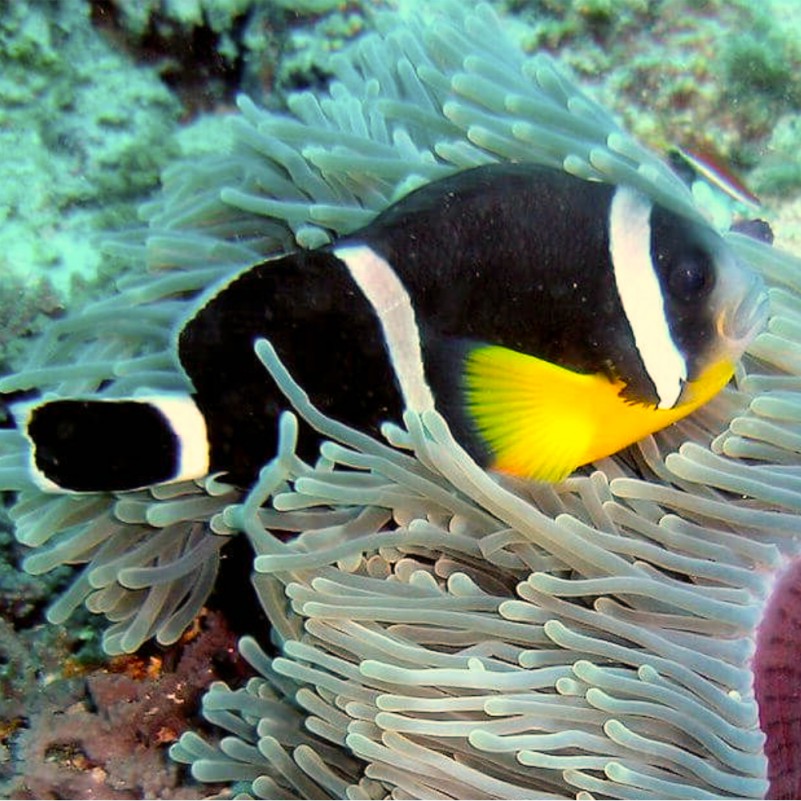




No one offers a better selection of healthy marine fish and invertebrates for the saltwater aquarium than Reeffishcenter. From angels, to clownfish, gobies,...
Amphiprion chrysogaster, commonly known as the Mauritian anemonefish, is a medium-sized anemonefish from the Clarkii complex. These fish only come from around Mauritius and are thus seldom imported, which make it a very rare fish. Thats too bad, because these are one of the most beautiful anemonefish in our opinion. So if you ever see them for sale, don't hesitate to buy them! Juveniles look very similar to a clarkii, but adults are very dark brown, almost black with three white bands. Their mouth and breast usually stay orange though, and their pelvic and pectoral fins are yellowish-orange as well.
These anemonefish can best be kept as a pair. When buying a pair you don't need to worry about male or female because these fish are hermaphroditic. This means the most dominant fish will automatically turn into the female when there is no other female around. Food wise, these fish are easy to feed. They're omnivores and will eat almost anything you offer. Just make sure they receive a balanced diet of live/frozen food and be sure to include some good quality pellets or flakes. These fish may have a hard time settling in an aquarium with aggressive fish, so it's best to introduce these fish before other more aggressive fish are introduced.
As long as no predators are around (which usually isn't the case in our aquaria), there is no need to add an anemone. They might find shelter in another large polyp coral or just hang around a certain rock. If you want to see the symbiotic relationship they've with their host in nature it's best to buy a Heteractis magnifica, H. aurora (only as juveniles), Stichodactyla haddoni, S. mertensii or Macrodactyla doreensis, because those are the anemones it's associated with in the wild.